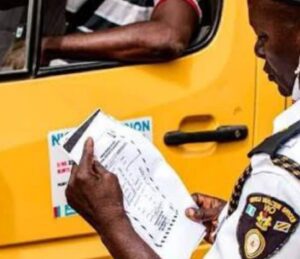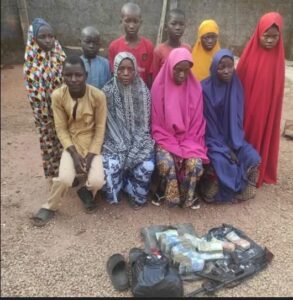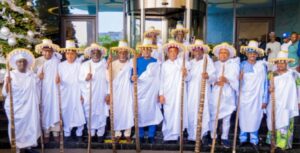Statistics of daily harvest of deaths from bandits, kidnappers and herders’ siege as well as those arising from Boko-Haram’s continuous attack on soft targets in the Northeast underscore not just how cheap life has become in Nigeria, but also the verdict on President Buhari’s handling of security, the most important reason Nigerians traded their freedom for his protection of their lives and properties.
Many Nigerians including APC sympathisers will readily agree the failure of government in this critical department is as a result of President Buhari’s mind-set.
In an age when governance has become a science, the president and his men have continued to ignore expert advice, public opinion and the wishes of Nigerians on the desirability of local and state police in a multi-cultural and heterogeneous society.
He has continued to show his inclination towards centralization and uniformity just as his predecessors have done since the collapse of the first republic. Government response to every sign of social dislocation has always been more centralization.
President Buhari has turned this to an art often resorting to force to demonstrate federal might even in circumstances where negotiation and compromise have better chance of ensuring unity in diversity in a deeply divided society like ours.
Every cycle of mindless killings in the last five years was followed by an assurance that victim communities would not be abandoned by the rest of the country, a promise that often found expression in deployment of police, soldier’s tanks and jet bombers.
Let us start with the president’s own Katsina State where eight local government areas including Kankara; Faskari; Dan-Musa; Safana; Sabuwa; Dandume; Jibia and Batsari have according to a report in Thisday, lost about 2,000 people, with 500 communities destroyed and over 33,000 people displaced as a result of incessant attacks.
President Buhari’s establishment of the Air Force bases at Daura and Katsina, and a Brigade Command of the Nigerian Army, has according to Dr. Bashir Ruwangodiya, Masari’s special adviser on higher education failed to “put an end to banditry, kidnapping, armed robbery and murder, as well as other crimes in Katsina State.”
In Plateau State, separate attacks by some unidentified gunmen according to Vanguard newspapers report (March 17, 2014) reportedly led to the death of 32 people were in Riyom Local Government, 19 in Rajat, and 11 in Atakar with about 60 houses burnt.
In Kaduna State, the paper also claimed gunmen suspected to be Fulani, killed no fewer than 30 people in Kirim, Zagan and Zandyen villages and razed hundreds of houses in the three communities.
Similar killings were reported in other areas of the state notably Sankwai, Tekum and Unguwan Gata villages in Maroa Chiefdom when the villages were invaded by those the villagers said looked like cross-border Fulani gunmen.
The cycle of killings have continued in Plateau State. Just last Monday, January 27, the Police in Plateau through ASP Abu Gabriel admitted the death toll in last Sunday night attack on Kwatas village in Bokkos Local Government Area of the state by gunmen had risen to 15.
This attack according to NAN reports was the second in the last two weeks. Twelve persons were reportedly killed in Kulben village in Kombun District of Mangu Local Government Area of the state by gunmen during the first attack.
President Buhari’s response to last week attack on Dogon Gona forest in Niger State communities by bandits, kidnappers and cattle rustlers was predictable.
Garba Shehu, the president’s Senior Special Assistant on Media and Publicity, has since informed Nigerians that the president had authorised the deployment of air power to support troops and policemen deployed to the “difficult terrain,” to counter the menace of the attackers operating in the forest area bordering Kaduna, Niger and Zamfara states.
The Police Command in Niger has equally given assurances that the planned dedicated air raids to complement the police helicopter gunship operations remain the best approach given the lack of motorized roads in the areas constantly under attack.”
And in what appears an advance notification to the criminals to relocate before the bombing, Garba Shehu hilariously added: ‘With the harmattan dust gradually easing its hold on the skies, it is time to strike’.
Experts have said military raids will continue to fail because of ‘the operational challenges arising from insufficient knowledge of the terrain.
Read Also: Insecurity: Buhari stunned as lawmakers seek action
Some of the communities in North-western Nigeria’s forestlands, according to Chukwuma Okoli are “located in remote areas where there is little or no government presence.
This situation is made worse by the absence of effective community policing mechanisms capable of addressing the hinterlands’ peculiar security challenges”.
There is a consensus among experts, concerned Nigerians and victims of herdsmen killings and bandits’ attack across the country that the cheapest and most effective strategy for securing local communities is through community policing.
In fact the pattern of attack as highlighted above has clearly shown that it is only the local people with the knowledge of themselves and of their terrain, who speak the same language and have stakes in their communities that are better placed to prevent infiltration and the overrunning of their communities by strangers.
Asking police men from Yoruba or Igbo country to go and confront Boko Haram in Borno State, local warlords and Fulani land grabbers in Zamfara or immigrant Fulani herdsmen and men fleeing the hostile Sahel region to Nigeria is to mistake policemen for soldiers who pledge to lay down their lives for their country.
State and community policing, whose central theory is that it can build relationships with their community through interactions with local agencies and members of the public, remain the best safeguard against insecurity in a deeply divided society like ours.
Perhaps the challenge posed to Abuja by the inauguration of ‘Amotekun’ security outfit by southwest states has finally pushed the federal government to revisit the community policing scheduled to have come on stream since August last year.
But there is already an apparent demonstration of insincerity on the part of the federal government. According to a Punch report, the IGP last Sunday ordered all state Commissioners of Police, Assistant Commissioners of Police and Divisional Police Officers to liaise with traditional rulers and community leaders in their domains to screen volunteers who would be engaged after passing the screening tests.
State and community police are not arms of federal police. Since we are a federation, states or group of states who share identical values should be allowed to organize community police that can best serve their purpose.
It is instructive that the Middle Belt Forum has already expressed preference for a regional security outfit like Amotekun which they believe would be more effective in curbing insecurity in the Middle Belt region.
Federal, state/community police maintain their different identities in all federations including the US where sanctions for the same offence differ from county to county.
Nigerians have no reason to doubt the president’s commitment to the country. But on account of his mind-set and his known opposition to restructuring and devolution of power including state police, not a few will view his directive and the IG’s attempt to introduce uniformity into community policing as part of a design to ensure the whole idea of state/ community policing is dead on arrival.
By Jide Oplu












